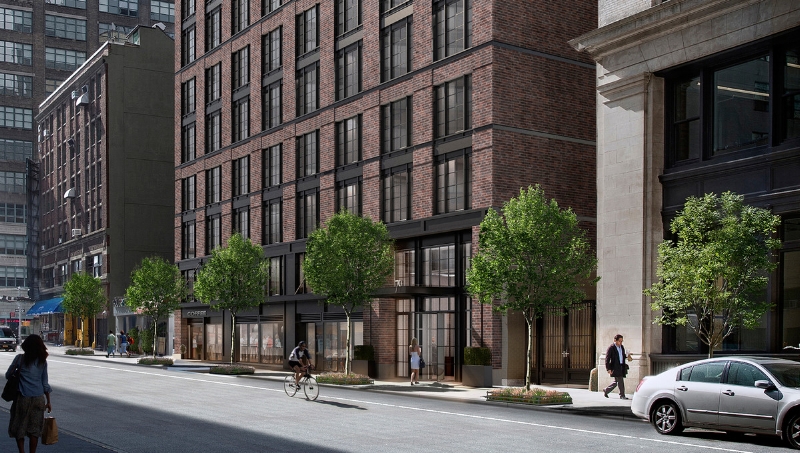Guide to Buy a Home in New York 2 | Residential Property Types
Guide to Buy a Home in New York
2.0
Residential Property Types
SINGLE-FAMILY HOUSES, CO-OPERATIVE APARTMENTS, CONDOMINIUM APARTMENTS, AND COND-OPS DEFINED
What is a Single-Family House?
Source: onthesetofnewyork.com
In the U.S., a single-family house is the most common form of home ownership. Ownership is evidenced by a deed that gives “free-simple” ownership of the house and the land on which it sits. The homeowner is responsible for payment of all real estate taxes, insurance, utility, and maintenance costs for the house.
What is a Condominium Apartment?
Condos are found in almost all U.S. cities. A condo, like a single-family house, is considered real property and the purchaser obtains title to the apartment by receiving a Deed from the seller. Rather than owning the building itself, a condominium unit owner owns the interior space of the apartment and a share of the building (known as the “common areas” or “common elements”) with the right to use the common areas of the building, such as the community facilities, laundry room, parking spaces, and hallways. Generally, a condo owner is permitted to alter the interior of his or her condominium apartment with permission from the condo board, provided that the alterations do not adversely affect the building’s structure or systems, or interfere with neighboring apartments.
What is a Co-operative Apartment?
Co-ops are common in New York City but relatively uncommon elsewhere. A co-operative corporation owns the building, including the individual apartments and the common areas. The corporation issues shares of its stock, which are allocated to each apartment, based upon its size and location within the building. As a shareholder in a co-operative corporation, you also receive a proprietary lease from the corporation, which gives you the right to live in the apartment. Most-co-operative corporations have a mortgage covering the entire building and each shareholder may obtain a loan for the purchase of their own apartment. Most co-operative corporations limit the amount of money a purchaser may borrow for the purchase of their apartment to an amount equal to between 50% and 80% of the purchase price. To obtain financing, a purchaser pledges their stock and lease as collateral for the loan and authorizes the lender to file a Uniform Commercial Code Financing Statement (UCC-1) to the county where the apartment is located to give the lender a lien against the apartment.
Each co-op corporation is governed by an elected board of directors whose powers are derived from the certificate of incorporation, the bylaws, the house rules, and the proprietary lease. The co-op’s board of directors establishes the co-op’s annual budget and makes all decisions about the operation of the building including the amount of the underlying mortgage, whether or not a purchaser’s or subtenant’s application to purchase or sublease in the building will be approved or disapproved, review and approval of repairs and alterations of individual apartments, repairs and capital improvements to the building, and the amount of monthly maintenance to be collected from the shareholders to cover the building’s operatizing expense. As a co-op owner, you pay a monthly maintenance fee to the co-op corporation to cover your share of the costs of operating the building. Typically, operating costs for the building are comprised of property taxes, monthly payments on the underlying mortgage, insurance, utilities, and labor costs.
What is a Cond-op? (A Co-op inside of a Condo)
Source: 6sqft
A cond-op is a residential co-operative building where the ground floor (typically consisting of commercial units such as offices or retain stores) is converted into a separate condominium unit owned by either an outside investor or by the original sponsor of the building. If the co-op corporating does not own the condominium portion of the building, the co-op corporation will not receive any of the rent paid by the commercial tenants. Nevertheless, most people refer to cond-ops when describing a co-op with policies regarding subletting and sales of the residential units similar to those for a condominium.
What is Land-Lease?
A land-lease co-op or condominium is a residential building in which the land beneath the building is owned by a third party. In some cases, having a land-lease can reduce the resale value of an apartment, but it is certainly not a reason to dismiss the transaction out of hand. Typically, land-lease arrangements occur when a real estate owner refuses to sell the land that a developer wishes to develop for a condominium or co-op. Apartments in land-lease buildings generally have higher carrying charges than in non-land-lease buildings because the rent for the land-lease is an additional operating expense included in the monthly maintenance or common charges. Some lenders may be unwilling to land in a land-lease building if the lease term is scheduled to expire in less than 30 years, or if the rent payable to the land owner is scheduled to escalate shortly based on the lease terms. Although it is highly unlikely that the landowner would refuse to renew the lease (most lease are renegotiated well in advance of their expiration), lenders still worry about their collateral. Since a land-lease apartment may be harder to finance, it may be more difficult to sell, which may also reduce its resale value. But land-lease properties also have an upside; their sales prices are often discounted (sometimes as much as 25%) relative to other comparable properties, offsetting some or all of the risk involved in owning such properties. At the very least, because of the discounted price, a purchaser may be able to purchase a larger apartment than he or she would have been able to afford otherwise.
Source: Keith A. Schuman





